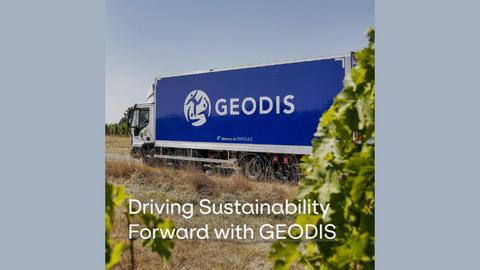Publications
Focus 81 | Decarbonisation through the lens of CMA CGM

Could you share the key initiatives CMA CGM has undertaken to transition towards new and sustainable energy sources within your operations?
The CMA CGM Group, a global leader in sea, land, air and logistics solutions aims to achieve Net Zero Carbon by 2050. The Group is driving energy transition through operational excellence, asset optimisation and increasing the share of low-carbon energies.
Our initiatives include investing in dual-fuel liquefied natural gas (LNG) powered vessels, capable of being powered by biogas, biomethanol, and synthetic fuels. By 2028, we will have 131 dual-fuel LNG and methanol vessels. We also invest in exploring and driving the maturity of future alternative energies, including hydrogen, ammonia and sail power.
In September 2022, we launched the €1.5 billion PULSE Energy Fund to accelerate energy transition within our Group and the transport and logistics industry.
What has CMA CGM learned from implementing alternative fuels like biomethane and biodiesel, and how will these insights be applied to enhance sustainability and efficiency?
Alternative fuels are not yet widely available in the quantities needed for large-scale maritime operations, hence establishing a consistent supply chain is critical. Beside downstream supply chain, having proper logistics and storage for these alternative fuels or having adequate bunkering infrastructure at ports, upstream supply chain is equally important.
Biomethane and biodiesel require sustainable feedstock for production and there is high demand for alternative fuels across industries beyond maritime. To support large-scale collection of suitable waste stream, infrastructure and practices need to be established, including regulatory framework.
Through PULSE, we have joined forces with industry leaders to scale up production units for low-carbon alternative fuels, to provide the volumes needed for the Group's maritime activities and the production of renewable energy for land-based assets. For instance, a co-shareholder project located in the Havre for future biomethane production of 11,000 tons per year by 2026, and an investment in a French biomethane producer.
Our collaboration with engine manufacturers has led to advancements in reducing methane slip and improving fuel efficiency. The working with members of the New Energies Coalition has also enabled us to develop and promote sustainable fuels, ensuring a unified approach towards a greener future.
How is CMA CGM collaborating with partners in the New Energies Coalition to develop sustainable marine fuels?
The New Energies Coalition, initiated by our Group Chairman and CEO, Rodolphe Saade in 2019, aims to develop sustainable marine fuels and advance energy transition in transport and logistics. CMA CGM actively collaborates with 20 key players from various sectors in the coalition to focus on decarbonisation through innovative energy solutions and technological advancements.
Beyond testing new bio-crude oil for maritime needs in pilot projects, the coalition has conducted studies on e-fuels like hydrogen, ammonia, e-methane, and e-methanol, and promotes biomethane and e-methane development.
At COP 28, CMA CGM along with other major shipowners announced the formation of a unique coalition to accelerate maritime decarbonisation, ensuring a level playing field and access to greener fuels for the industry by working closely with regulators.

Contributed by




